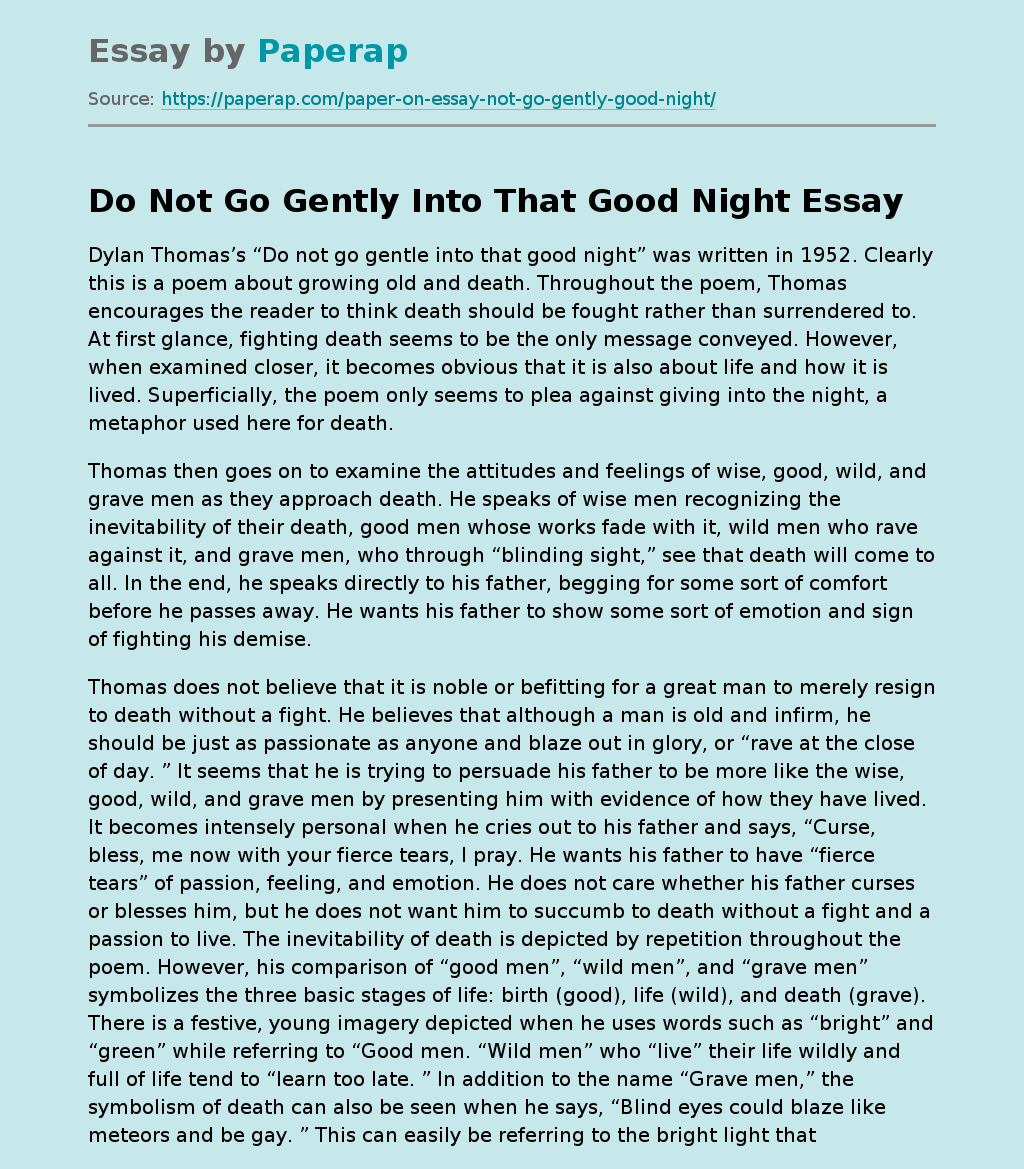Do Not Go Gently Into That Good Night
Dylan Thomas’s “Do not go gentle into that good night” was written in 1952. Clearly this is a poem about growing old and death. Throughout the poem, Thomas encourages the reader to think death should be fought rather than surrendered to. At first glance, fighting death seems to be the only message conveyed. However, when examined closer, it becomes obvious that it is also about life and how it is lived. Superficially, the poem only seems to plea against giving into the night, a metaphor used here for death.
Thomas then goes on to examine the attitudes and feelings of wise, good, wild, and grave men as they approach death. He speaks of wise men recognizing the inevitability of their death, good men whose works fade with it, wild men who rave against it, and grave men, who through “blinding sight,” see that death will come to all. In the end, he speaks directly to his father, begging for some sort of comfort before he passes away.
He wants his father to show some sort of emotion and sign of fighting his demise.
Thomas does not believe that it is noble or befitting for a great man to merely resign to death without a fight. He believes that although a man is old and infirm, he should be just as passionate as anyone and blaze out in glory, or “rave at the close of day. ” It seems that he is trying to persuade his father to be more like the wise, good, wild, and grave men by presenting him with evidence of how they have lived.
It becomes intensely personal when he cries out to his father and says, “Curse, bless, me now with your fierce tears, I pray. He wants his father to have “fierce tears” of passion, feeling, and emotion. He does not care whether his father curses or blesses him, but he does not want him to succumb to death without a fight and a passion to live. The inevitability of death is depicted by repetition throughout the poem. However, his comparison of “good men”, “wild men”, and “grave men” symbolizes the three basic stages of life: birth (good), life (wild), and death (grave). There is a festive, young imagery depicted when he uses words such as “bright” and “green” while referring to “Good men. “Wild men” who “live” their life wildly and full of life tend to “learn too late. ” In addition to the name “Grave men,” the symbolism of death can also be seen when he says, “Blind eyes could blaze like meteors and be gay. ” This can easily be referring to the bright light that some claim to see before a near death experience. Although death is the most apparent theme, the bigger picture suggests the importance of possessing a passion for living life.
Do Not Go Gently Into That Good Night. (2019, Jun 20). Retrieved from https://paperap.com/paper-on-essay-not-go-gently-good-night/

